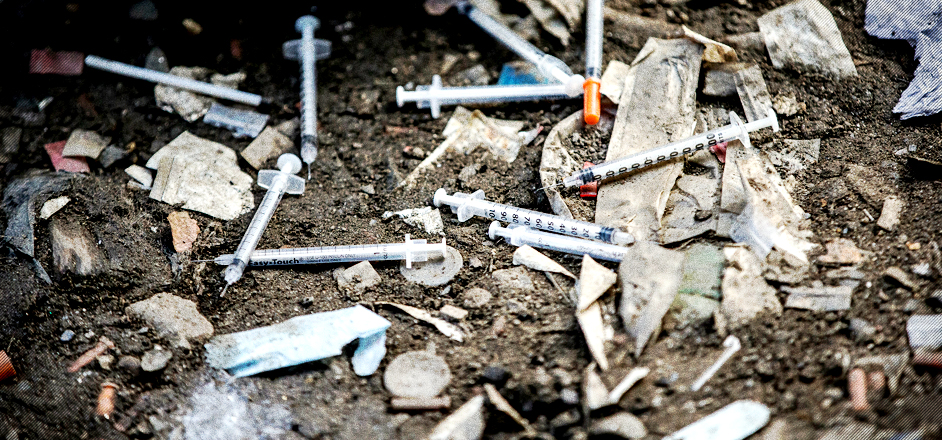NEW YORK (AP) — One type of superbug bacteria is increasingly spreading among people who inject drugs, according to a new government report.
Users of heroin and other injection drugs were 16 times more likely than other people to develop severe illnesses from MRSA, said the report published Thursday.
"Drug use has crept up and now accounts for a substantial proportion of these very serious infections," said Dr. William Schaffner of Vanderbilt University, one of the study's authors.
The U.S. is in the midst of its deadliest drug epidemic ever. While overdose deaths have been the main concern, some studies have noted HIV and hepatitis C infections are spreading among drug users. The authors say the new report is one of the first — and the largest — to highlight how superbug bacterial infections are spreading, too.
MRSA, or methicillin-resistant Staphylococcus aureus bacteria, often live on the skin without causing symptoms. But they can become more dangerous if they enter the bloodstream, destroying heart valves or causing other damage. Health officials have tied MRSA to as many as 11,000 U.S. deaths a year.
Public health efforts have focused on MRSA's spread in hospitals and nursing homes, and infection-control campaigns have been credited for recent drops in MRSA infections at health care facilities.
But as that success story has unfolded, MRSA infections tied to illicit drug use have risen.
The opioid epidemic began with abuse of prescription pain pills, but in recent years has shifted to heroin and other injectable drugs.
MRSA "is on the skin, and as the needle goes into the skin it brings the bacteria with it," explained Dr. Isaac See of the Centers for Disease Control and Prevention, another of the study's authors.
The proportion of invasive, bloodstream-infecting MRSA cases that occurred among injection drug users more than doubled in five years, the study found. In 2011, 4 percent of those MRSA cases involved injection drug users; in 2016, the proportion was 9 percent.
The report is based on infections diagnosed at hospitals across Connecticut and in parts of California, Georgia, Minnesota, New York and Tennessee. Data were collected from 2005 through 2016.
About 39,000 invasive MRSA cases were reported, including about 2,100 among people who inject drugs.



Leave a Reply
You must be logged in to post a comment.